
Dunedin: A Tapestry of Scottish Heritage and Natural Splendor
Dunedin, located on the southeast coast of New Zealand's South Island, is a charming city steeped in history and brimming with natural beauty. Known for its Scottish roots, Dunedin's architecture and culture reflect a rich heritage that dates back to the 19th century when Scottish settlers made this place their home. As you walk through the city, you'll be captivated by the stunning Victorian and Edwardian buildings, including the iconic Dunedin Railway Station, often considered one of the most beautiful railway stations in the world. Beyond its historical allure, Dunedin is a haven for nature lovers. The city is surrounded by dramatic landscapes, including lush forests, rugged coastlines, and serene beaches. The Otago Peninsula, just a short drive from the city center, is a must-visit for wildlife enthusiasts. Here, you can witness rare species like the yellow-eyed penguin, the royal albatross, and fur seals in their natural habitat. The peninsula also offers breathtaking views and scenic walking trails that are perfect for a day of exploration. Dunedin is also a vibrant cultural hub with a thriving arts scene. The city boasts numerous galleries, theaters, and museums, including the Otago Museum and the Dunedin Public Art Gallery. Additionally, the University of Otago, New Zealand's oldest university, adds a youthful and dynamic vibe to the city. With its bustling cafes, eclectic shops, and lively events calendar, Dunedin offers a unique blend of old-world charm and modern-day excitement that will leave any visitor enchanted.
Local tips in Dunedin
- Visit the Dunedin Railway Station early in the morning to avoid the crowds and get the best photos.
- Take a guided wildlife tour on the Otago Peninsula for the best chance to see rare animals.
- Explore the city's numerous walking trails, especially the Dunedin Street Art Trail, to discover local art and hidden gems.
- Try the local cuisine at one of the city's many cafes and restaurants; don't miss out on a traditional Kiwi pie.
- Visit the University of Otago campus for its beautiful architecture and vibrant student atmosphere.
Neighbourhoods in Dunedin
Dunedin: A Tapestry of Scottish Heritage and Natural Splendor
Dunedin, located on the southeast coast of New Zealand's South Island, is a charming city steeped in history and brimming with natural beauty. Known for its Scottish roots, Dunedin's architecture and culture reflect a rich heritage that dates back to the 19th century when Scottish settlers made this place their home. As you walk through the city, you'll be captivated by the stunning Victorian and Edwardian buildings, including the iconic Dunedin Railway Station, often considered one of the most beautiful railway stations in the world. Beyond its historical allure, Dunedin is a haven for nature lovers. The city is surrounded by dramatic landscapes, including lush forests, rugged coastlines, and serene beaches. The Otago Peninsula, just a short drive from the city center, is a must-visit for wildlife enthusiasts. Here, you can witness rare species like the yellow-eyed penguin, the royal albatross, and fur seals in their natural habitat. The peninsula also offers breathtaking views and scenic walking trails that are perfect for a day of exploration. Dunedin is also a vibrant cultural hub with a thriving arts scene. The city boasts numerous galleries, theaters, and museums, including the Otago Museum and the Dunedin Public Art Gallery. Additionally, the University of Otago, New Zealand's oldest university, adds a youthful and dynamic vibe to the city. With its bustling cafes, eclectic shops, and lively events calendar, Dunedin offers a unique blend of old-world charm and modern-day excitement that will leave any visitor enchanted.
When is the best time to go to Dunedin?
Iconic landmarks you can’t miss
Larnach Castle
Explore the enchanting Larnach Castle, the only castle in New Zealand, where history, romance, and stunning gardens await every visitor.
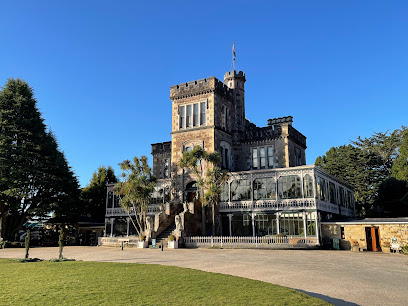
Otago Museum
Explore the fascinating exhibits and cultural heritage at Otago Museum, a must-visit destination in Dunedin, New Zealand.
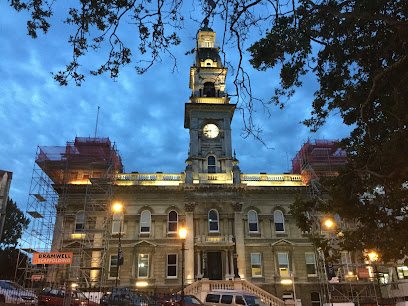
Baldwin Street - The Steepest Street in the World
Experience the thrill of walking Baldwin Street, the steepest street in the world, in Dunedin, New Zealand - a unique adventure with breathtaking views.
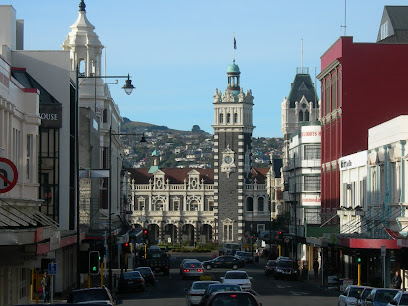
Dunedin Railways
Explore the breathtaking landscapes of Dunedin aboard Dunedin Railways, a historic journey through New Zealand's stunning scenery and rich heritage.
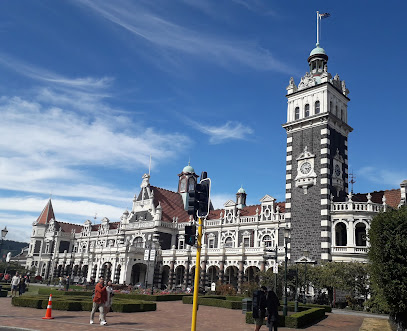
Toitu Otago Settlers Museum
Explore the fascinating history of Dunedin at Toitu Otago Settlers Museum, a cultural gem showcasing the region's diverse heritage.
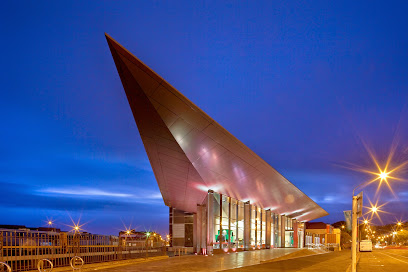
Lan Yuan, Dunedin Chinese Garden
Discover the serene beauty and cultural richness of Lan Yuan, Dunedin Chinese Garden - a tranquil retreat in the heart of Dunedin.
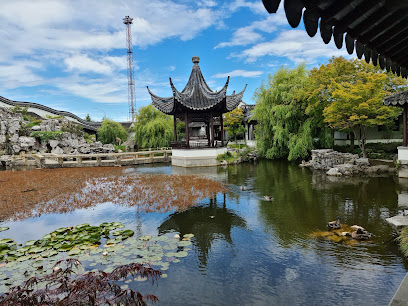
Signal Hill Lookout
Experience the stunning panoramic views of Dunedin and the Otago Peninsula at Signal Hill Lookout, a top scenic spot for unforgettable memories.
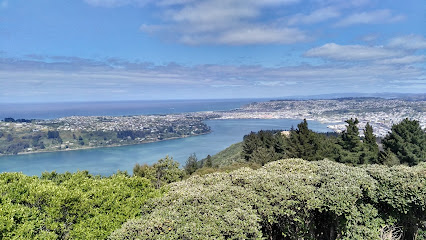
Olveston Historic Home
Discover the grandeur of early 20th-century life at Olveston Historic Home, a stunning heritage site in Dunedin brimming with art and history.
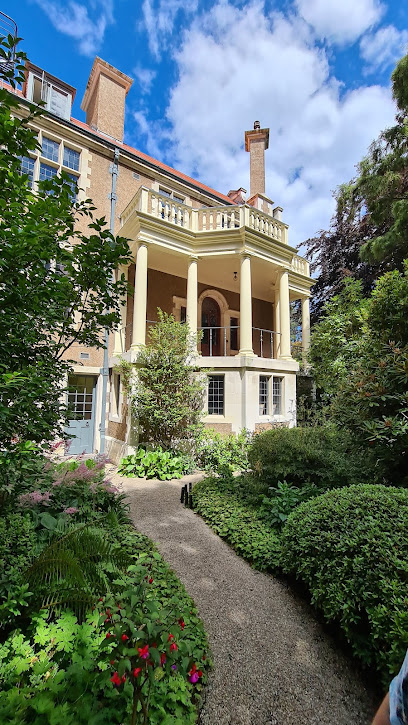
Flagstaff Lookout
Explore the natural beauty and captivating views of Flagstaff Lookout, a must-see tourist attraction in New Zealand's Northland region.
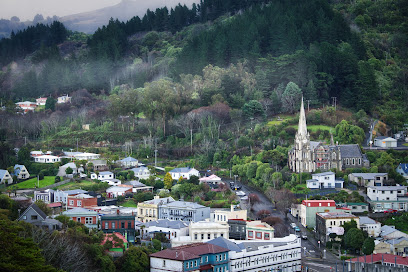
Dunedin Town Hall
Explore Dunedin Town Hall, a historical venue blending stunning architecture with vibrant cultural events in New Zealand's southern gem.
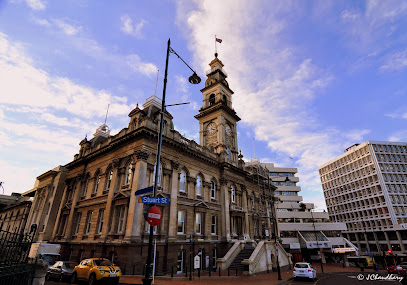
The OPERA - Otago Peninsula Eco Restoration Alliance
Explore the beautiful wildlife refuge at The OPERA, where conservation meets education on the stunning Otago Peninsula.
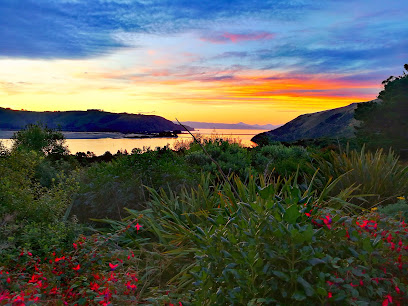
Sandfly Bay
Experience the breathtaking landscapes and diverse wildlife at Sandfly Bay, a stunning gem on the Otago Peninsula, New Zealand.
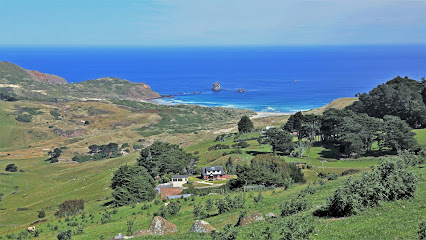
First Church Of Otago
Discover the architectural beauty and spiritual serenity of the First Church of Otago, a historical gem in Dunedin, New Zealand.
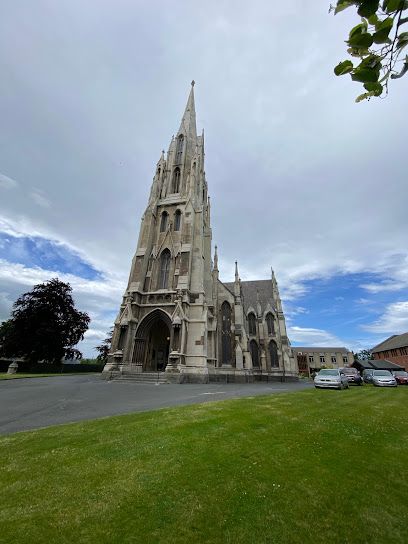
St. Paul's Cathedral
Explore the awe-inspiring St. Paul's Cathedral in Dunedin, a stunning Anglican church rich in history and architectural beauty, perfect for spiritual reflection.
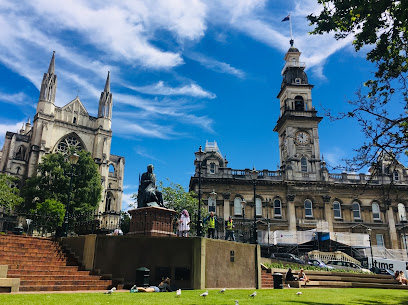
The Organ Pipes
Experience the breathtaking natural beauty of The Organ Pipes in Otago, featuring unique hexagonal rock formations and stunning landscapes.
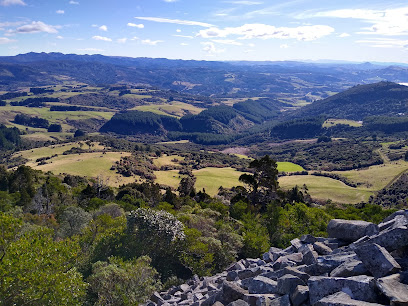
Unmissable attractions to see
Larnach Castle
Explore the grandeur of Larnach Castle, New Zealand's only castle, where history and breathtaking gardens await in Dunedin.
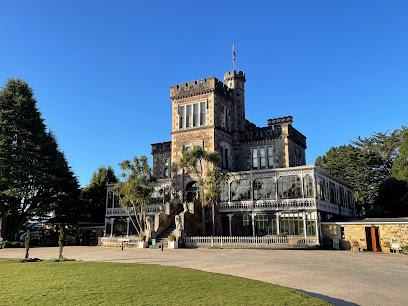
Otago Museum
Explore the captivating Otago Museum, where New Zealand's cultural and natural history come to life in the heart of Dunedin.
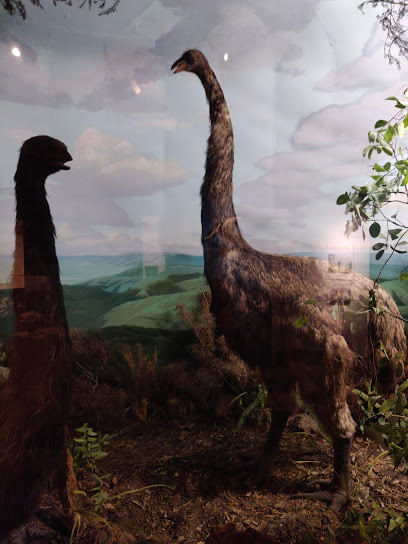
Royal Albatross Centre
Experience the wonder of nature at the Royal Albatross Centre, home to the only mainland breeding colony of albatrosses in New Zealand.

Dunedin Botanic Garden
Explore the stunning Dunedin Botanic Garden, a floral paradise featuring diverse plant species, serene landscapes, and educational experiences in New Zealand.
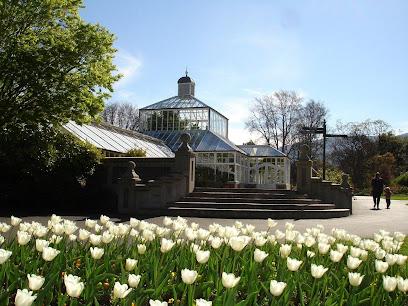
Dunedin Railways
Experience the breathtaking landscapes of Dunedin with Dunedin Railways, where history meets stunning natural beauty on scenic train journeys.
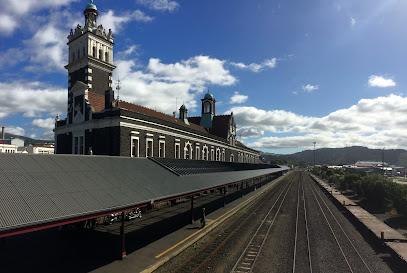
Toitu Otago Settlers Museum
Uncover the stories of Otago's settlers at Toitu Otago Settlers Museum, a captivating journey through New Zealand's rich history.
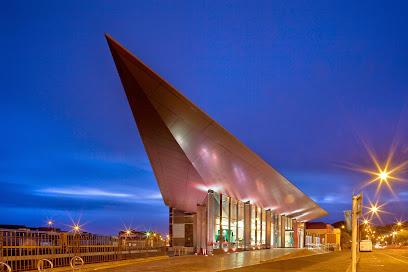
Lan Yuan, Dunedin Chinese Garden
Explore the tranquil beauty of Lan Yuan, Dunedin's Chinese Garden, a serene escape showcasing rich cultural heritage and stunning landscapes.
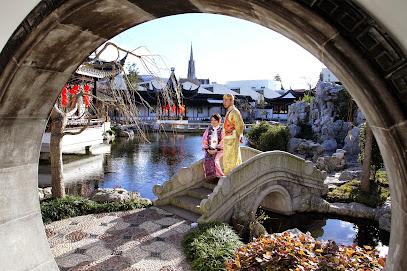
Signal Hill Lookout
Discover breathtaking views at Signal Hill Lookout, a must-visit scenic spot in Dunedin, New Zealand, perfect for nature lovers and photographers.
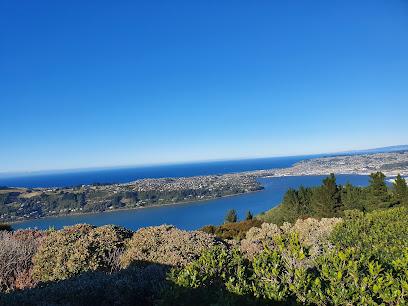
Orokonui Ecosanctuary - Te Korowai o Mihiwaka
Explore Orokonui Ecosanctuary, Dunedin's premier wildlife refuge, featuring unique native species and stunning natural landscapes in a conservation-driven environment.
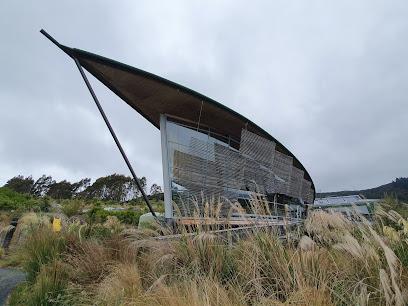
Olveston Historic Home
Explore Olveston Historic Home, an exquisite Edwardian mansion in Dunedin showcasing art, history, and architectural beauty.
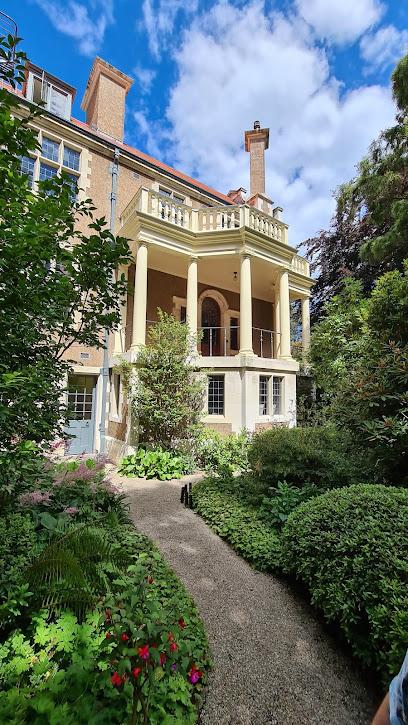
Marlow Park Playground
Explore the vibrant Marlow Park Playground in Dunedin, where families can enjoy play equipment, scenic views, and the beauty of nature.
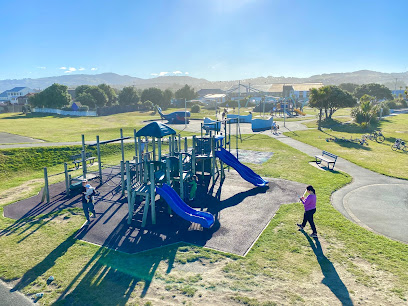
Tunnel Beach
Explore Tunnel Beach, a breathtaking coastal paradise in Otago, New Zealand, known for its stunning cliffs and unique rock formations.
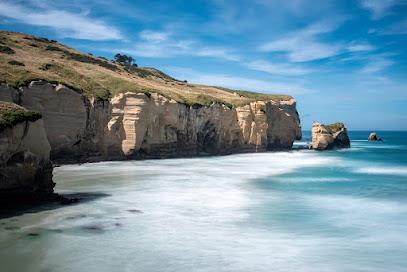
Flagstaff Lookout
Explore the stunning vistas of Flagstaff Lookout, a must-visit tourist attraction in New Zealand's breathtaking Russell region.
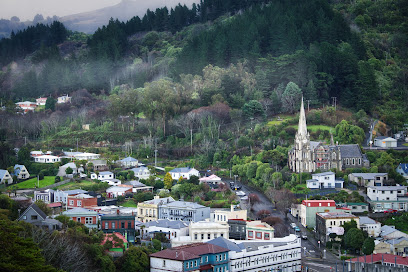
The OPERA - Otago Peninsula Eco Restoration Alliance
Experience the beauty of New Zealand's wildlife at The OPERA - Otago Peninsula Eco Restoration Alliance, a top eco-tourism destination.
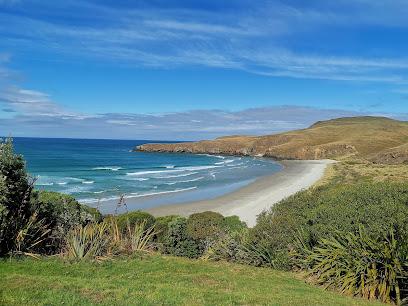
University of Otago
Explore the historic University of Otago, a stunning campus in Dunedin offering rich academic heritage, beautiful architecture, and vibrant cultural experiences.
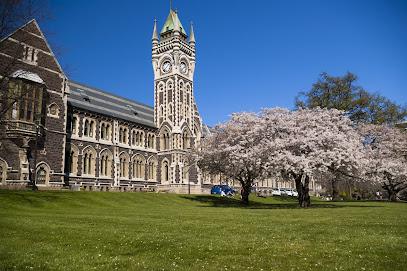
Essential places to dine
Esplanade Restaurant
Experience authentic Italian cuisine at Esplanade Restaurant in Dunedin's scenic St Clair suburb with ocean views and a vibrant atmosphere.
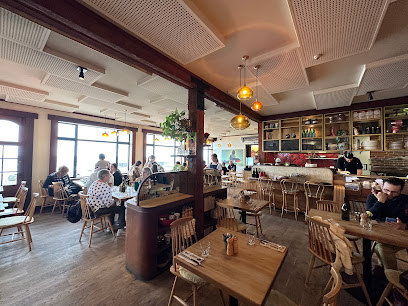
Careys Bay Historic Hotel
Discover Dunedin's heritage at Careys Bay Historic Hotel—where seafood meets stunning coastal views.
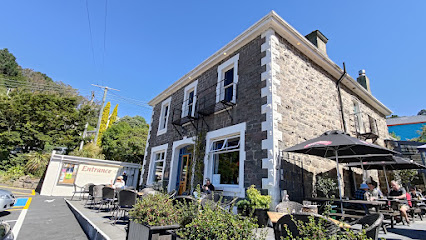
Etrusco at the Savoy
Experience authentic Italian cuisine at Etrusco at the Savoy in Central Dunedin, where every dish is crafted with passion and quality ingredients.
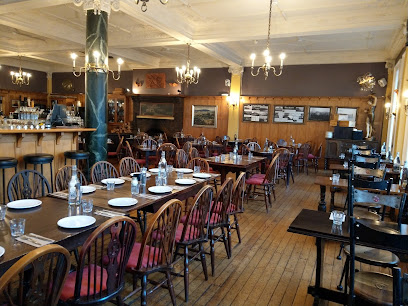
Vault 21
Discover Vault 21: A dynamic restaurant and nightclub in Central Dunedin offering delicious cuisine and vibrant nightlife experiences.
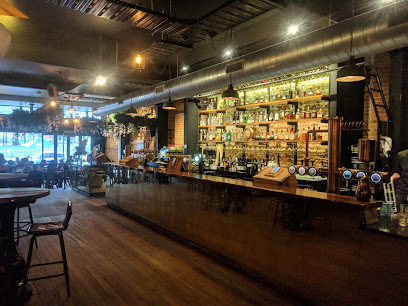
Starfish Cafe & Bar
Experience coastal cuisine at Starfish Cafe & Bar in Dunedin - where fresh ingredients meet breathtaking views.
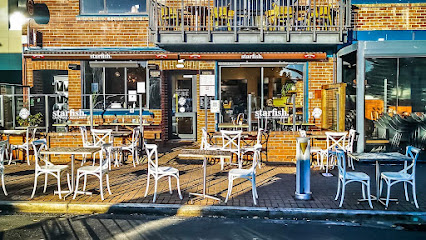
Vogel St Kitchen
Discover the best breakfast experience in Dunedin at Vogel St Kitchen - where local flavors meet cozy vibes.
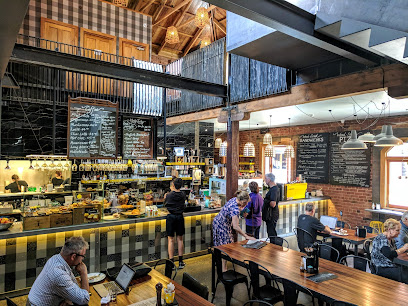
Lone Star Dunedin
Savor the best of New Zealand cuisine at Lone Star Dunedin – where local flavors meet vibrant dining experiences.
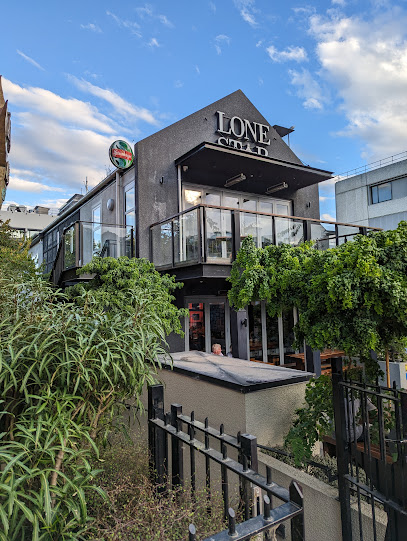
IRONIC
Discover Dunedin's culinary gem at IRONIC - where great food meets vibrant atmosphere in the heart of Central Dunedin.
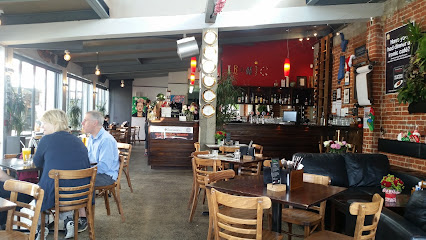
No 7 Balmac
Experience exquisite dining with local flavors at No 7 Balmac in Dunedin's picturesque Maori Hill.
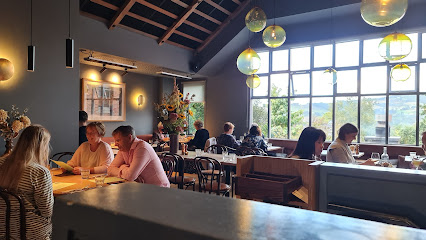
Cobb & Co. at the Railway Station
Discover Dunedin's culinary gem at Cobb & Co., where history meets modern dining in an iconic railway station setting.
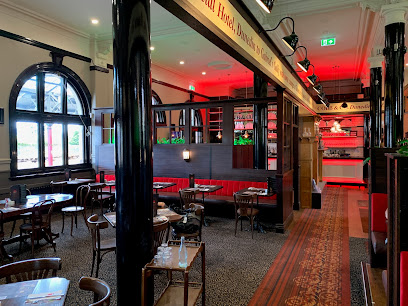
The Jitsu
Discover authentic Japanese flavors at The Jitsu in Central Dunedin - where every sushi roll tells a story.
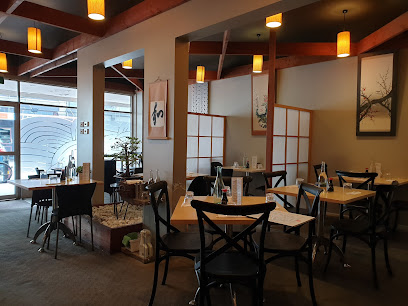
Harbourside Grill
Experience exquisite seafood and steak dishes at Harbourside Grill in Dunedin—where culinary excellence meets stunning local flavors.
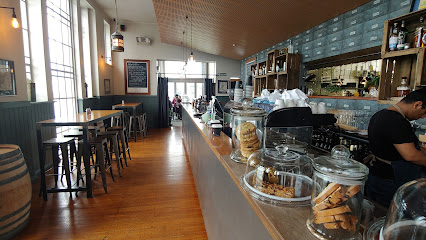
La Porchetta Restaurant Dunedin
Experience the flavors of Italy at La Porchetta Dunedin – where delicious pizzas and pastas meet warm hospitality.
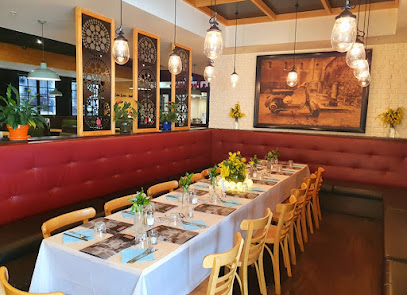
The Black Dog Kitchen & Bar
Experience Dunedin's culinary delights at The Black Dog Kitchen & Bar—where great food meets a cozy atmosphere.
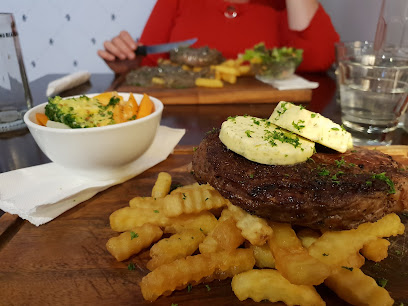
Ombrellos Kitchen & Bar
Experience the flavors of New Zealand at Ombrellos Kitchen & Bar in Dunedin - where culinary creativity meets local ingredients.
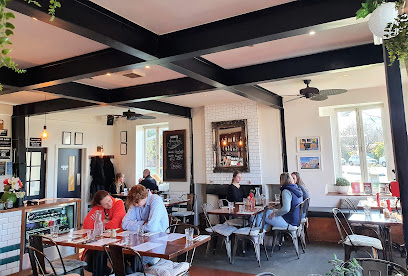
Markets, malls and hidden boutiques
Meridian Mall
Explore Meridian Mall, Dunedin's vibrant shopping destination with diverse stores and delightful dining options, perfect for every traveler.
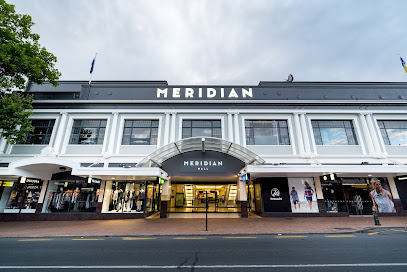
Farmers Dunedin
Explore Farmers Dunedin, your ultimate shopping destination in the heart of the city with diverse offerings from clothing to home goods.
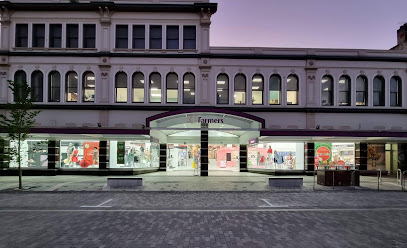
Wall Street Mall
Discover unique shops and dining experiences at Wall Street Mall, the heart of shopping in Dunedin, New Zealand.
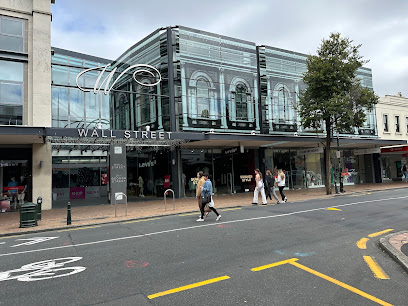
Hard To Find Secondhand Bookshop Dunedin
Discover a treasure trove of literature at Dunedin's Hard To Find Secondhand Bookshop, where every book has a story waiting to be told.
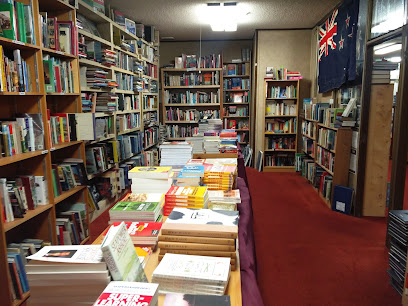
Dead Souls Bookshop
Discover a literary treasure trove at Dead Souls Bookshop in Dunedin, where every corner is filled with pre-loved books waiting to tell their stories.
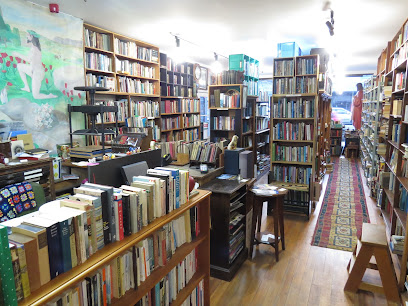
Little Rock Shop
Explore Little Rock Shop in Dunedin for exquisite handcrafted jewelry, unique beads, and stunning gemstones that capture the essence of New Zealand.
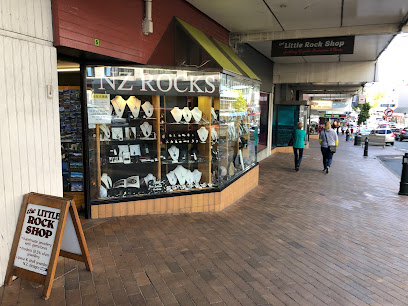
Shop on Carroll
Explore sustainable fashion and unique vintage finds at Shop on Carroll in Central Dunedin, a treasure trove for eco-conscious shoppers.
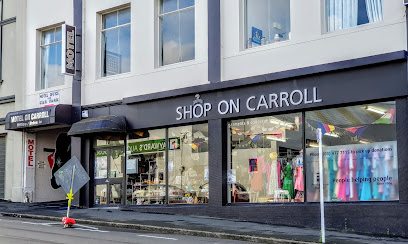
The Scottish Shop
Explore a treasure trove of authentic Scottish gifts and souvenirs in the heart of Dunedin, New Zealand.
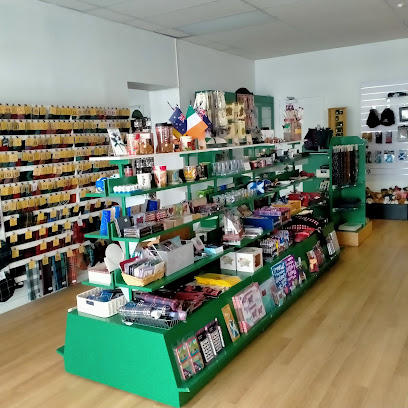
Otago Museum Shop
Discover unique gifts that capture the spirit of Dunedin at the Otago Museum Shop, where local craftsmanship meets cultural heritage.
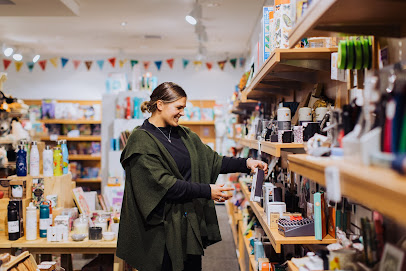
The Outpost Dunedin
Explore The Outpost Dunedin, where local craftsmanship meets unique gift shopping in the heart of Dunedin CBD.
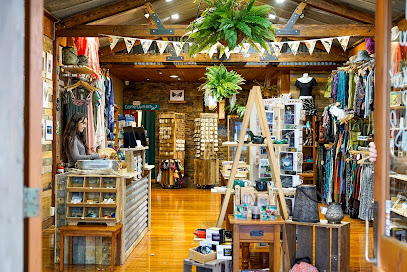
Two Squirrels Vintage Emporium
Explore the charm of vintage fashion at Two Squirrels Vintage Emporium, a must-visit destination in Dunedin for unique clothing and accessories.
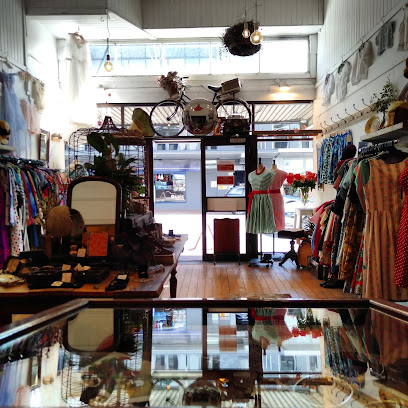
Void Clothing
Discover unique fashion finds at Void Clothing in Central Dunedin, where contemporary styles and exceptional service await every fashion enthusiast.

Acquisitions - Dunedin
Discover unique gifts and local artistry at Acquisitions in Central Dunedin, your go-to destination for memorable souvenirs.
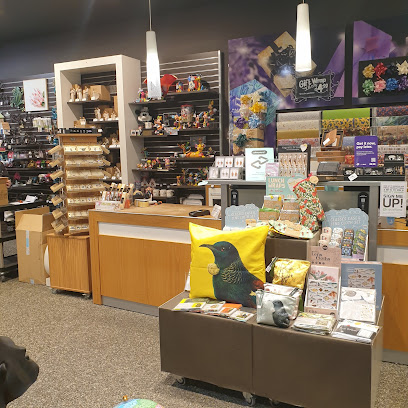
Design Withdrawals
Explore unique jewelry, lighting, and souvenirs at Design Withdrawals, a charming gift shop in Central Dunedin, New Zealand.
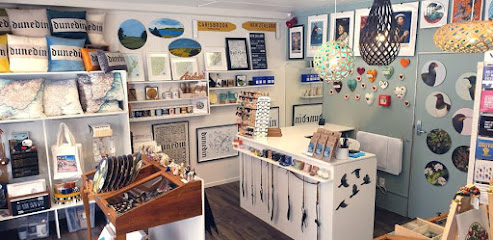
New Zealand Gift Shop
Discover a treasure trove of unique gifts and authentic Kiwi products at the New Zealand Gift Shop in Dunedin, perfect for all travelers.
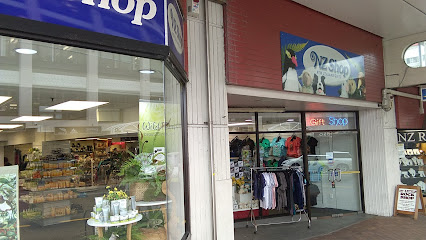
Essential bars & hidden hideouts
Vault 21
Experience the vibrant atmosphere of Vault 21, a top bar and nightclub in Central Dunedin featuring delicious food, creative cocktails, and live entertainment.
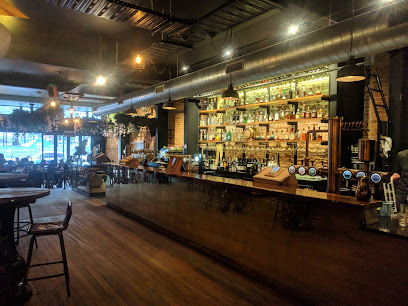
The Craic Irish Tavern
Discover the heart of Irish culture at The Craic Irish Tavern in Dunedin, where delicious food and live music create unforgettable experiences.
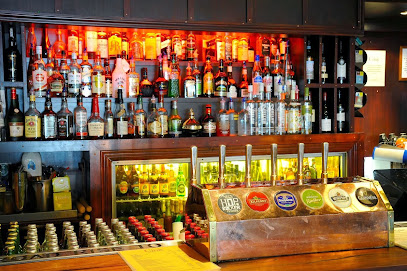
Ombrellos Kitchen & Bar
Discover Ombrellos Kitchen & Bar in Dunedin: A culinary gem offering local flavors, a cozy atmosphere, and a delightful dining experience for all.
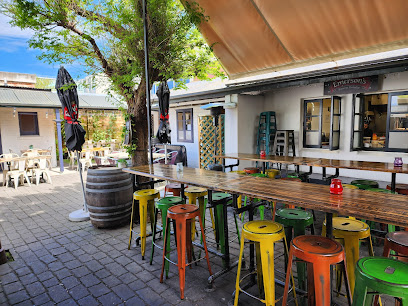
Luna Bar and Restaurant
Experience the best of Dunedin's culinary scene at Luna Bar and Restaurant, where modern cuisine meets a welcoming atmosphere.
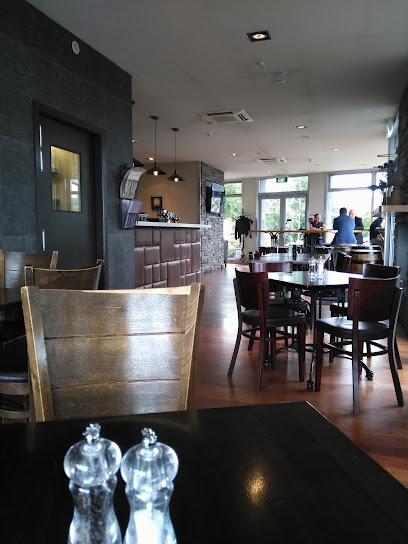
The Bog
Discover The Bog in Central Dunedin, where Irish pub charm meets modern dining, offering a perfect blend of food, drink, and atmosphere.
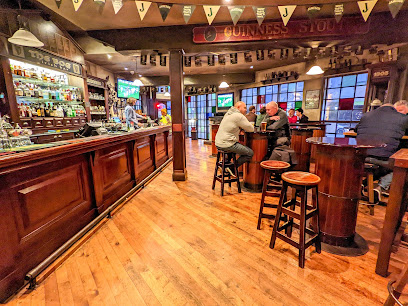
Craft Bar & kitchen
Experience Dunedin's vibrant bar culture at Craft Bar & Kitchen, where local flavors and craft beers create unforgettable moments.
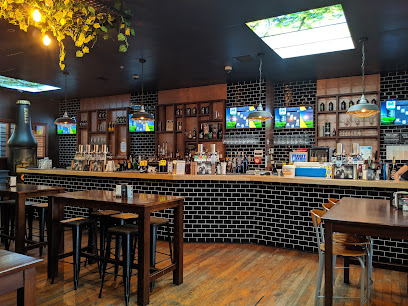
Cableways Bar & Bistro
Discover the vibrant flavors of Dunedin at Cableways Bar & Bistro, where exceptional grill cuisine meets a lively atmosphere for an unforgettable dining experience.
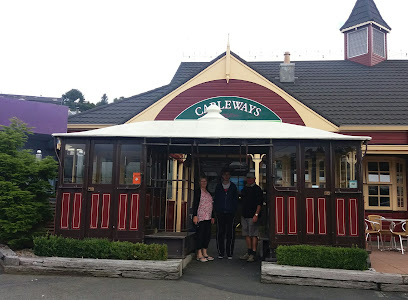
Speights Ale House
Experience Dunedin's rich brewing heritage at Speights Ale House, a gastropub serving delicious local cuisine and craft beers.
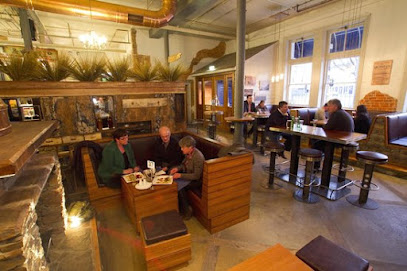
Eureka Cafe & Bar
Discover the vibrant flavors of Dunedin at Eureka Cafe & Bar, where delicious food and a welcoming atmosphere meet.
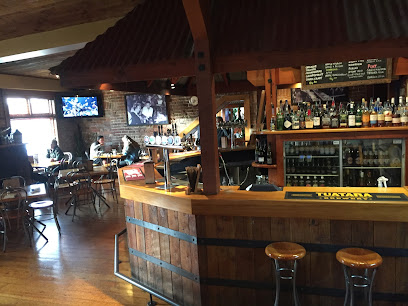
Albar
Discover Albar, a lively bar in Central Dunedin, where the finest local brews and cocktails meet a warm, inviting atmosphere.
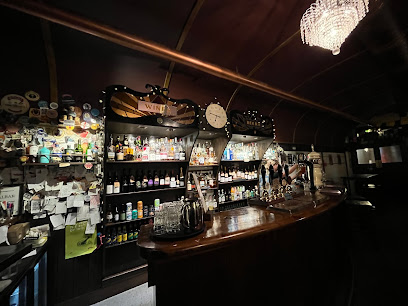
Zanzibar
Experience the vibrant culture of Dunedin at Zanzibar, a popular bar and café offering a unique blend of local flavors and a lively atmosphere.
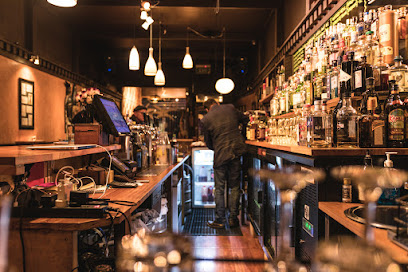
Woof!
Experience the cozy charm and vibrant atmosphere of Woof! Bar in Dunedin, where local flavors and friendly service await.
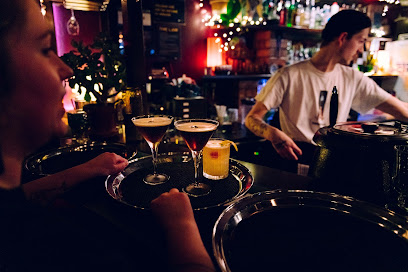
Pequeno Wine & Cocktail
Discover the vibrant atmosphere of Pequeno Wine & Cocktail in Dunedin, where exquisite cocktails and live music create unforgettable nights.
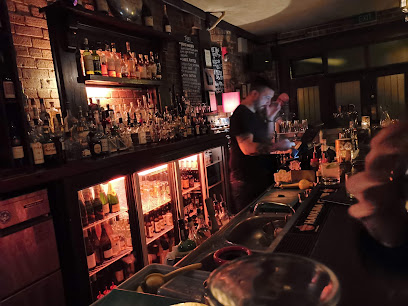
The Duke of Wellington
Experience the vibrant atmosphere, extensive drink selection, and delicious food at The Duke of Wellington, a top bar in Dunedin, New Zealand.
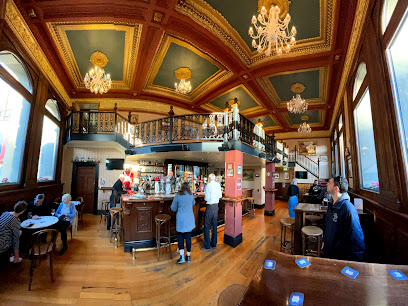
Local Phrases
-
- HelloKia ora
[Kee-ah or-ah] - GoodbyeHaere rā
[High-deh rah] - YesĀe
[Eye] - NoKāore
[Kah-oh-reh] - Please/You're welcomeTēnā koe
[Teh-nah koh-eh] - Thank youNgā mihi
[Nah mee-hee] - Excuse me/SorryWhakakororia
[Fah-kah-koh-ree-ah] - How are you?Kei te pēhea koe?
[Key teh pay-hay-ah koh-eh] - Fine. And you?Kei te pai. Ā, koe?
[Key teh pie. Eye, koh-eh] - Do you speak English?Kōrero koe i te reo Pākehā?
[Koh-reh-ro koh-eh ee teh reh-oh pah-keh-hah] - I don't understandKaore au i te mohio
[Kah-oh-reh ow ee teh moh-hee-oh]
- HelloKia ora
-
- I'd like to see the menu, pleaseMe titiro i te pānui kai, ā, tēnā
[Meh tee-tee-roh ee teh pah-noo-ee kai, ah, teh-nah] - I don't eat meatKāore au e kai mīti
[Kah-oh-reh ow eh kai mee-tee] - Cheers!Ērauti!
[Eh-rah-oo-tee] - I would like to pay, pleaseMe utu ahau, tēnā
[Meh oo-too ah-how, teh-nah]
- I'd like to see the menu, pleaseMe titiro i te pānui kai, ā, tēnā
-
- Help!Āwhina!
[Eye-fee-nah] - Go away!Haere ki waho!
[High-deh kee wah-hoh] - Call the Police!Karanga ki te Pirihimana!
[Kah-rah-ngah kee teh pee-ree-hee-mah-nah] - Call a doctor!Karanga ki te Rata!
[Kah-rah-ngah kee teh rah-tah] - I'm lostI wareware ahau
[Ee wah-reh-wah-reh ah-how] - I'm illE hiamoe ahau
[Eh hee-ah-moh-eh ah-how]
- Help!Āwhina!
-
- I'd like to buy...Me hoko...
[Meh hoh-koh] - I'm just lookingKei te titiro anō
[Key teh tee-tee-roh ah-noh] - How much is it?E hia te utu?
[Eh hee-ah teh oo-too] - That's too expensiveHe nui te utu
[Heh noo-ee teh oo-too] - Can you lower the price?Ka taea e koe te whakaiti i te utu?
[Kah teh-ah eh koh-eh teh fah-kai-tee ee teh oo-too]
- I'd like to buy...Me hoko...
-
- What time is it?He aha te wā?
[Heh ah-hah teh wah] - It's one o'clockKo te tahi karaka
[Koh teh tah-hee kah-rah-kah] - Half past (10)Tekau mā rima
[Teh-kow mah ree-mah] - MorningAhiahi
[Ah-hee-ah-hee] - AfternoonAhiahi
[Ah-hee-ah-hee] - EveningPō
[Poh] - YesterdayInārā
[Ee-nah-rah] - TodayTēnei rā
[Teh-nay rah] - TomorrowĀpōpō
[Ah-poh-poh] - 1Tahi
[Tah-hee] - 2Rua
[Roo-ah] - 3Toru
[Toh-roo] - 4Whā
[Fah] - 5Rima
[Ree-mah] - 6Ono
[Oh-no] - 7Whitu
[Fee-too] - 8Waru
[Wah-roo] - 9Iwa
[Ee-wah] - 10Tekau
[Teh-kow]
- What time is it?He aha te wā?
-
- Where's a/the...?Kei hea te...?
[Key hay-ah teh] - What's the address?He aha te wāhi?
[Heh ah-hah teh wah-hee] - Can you show me (on the map)?Ka taea e koe te whakaatuhia i ahau (ki runga i te mahere)?
[Kah teh-ah eh koh-eh teh fah-kah-too-hee-ah ee ah-how (kee roo-ngah ee teh mah-heh-reh)] - When's the next (bus)?Āhea te wāhi i te rohe?
[Eye-heh teh wah-hee ee teh roh-heh] - A ticket (to ....)He tiki (ki ...)
[Heh tee-kee (kee)]
- Where's a/the...?Kei hea te...?
History of Dunedin
-
Dunedin was founded in 1848 by the Free Church of Scotland, and its name is derived from the Scottish Gaelic name for Edinburgh, Dùn Èideann. The settlers aimed to create a city that embodied the best elements of their Scottish heritage and religious values.
-
The discovery of gold at Gabriel's Gully in 1861 sparked the Otago Gold Rush, bringing a massive influx of people and wealth to Dunedin. The population swelled, and the city rapidly developed, becoming New Zealand’s largest urban centre by the late 1860s.
-
Larnach Castle, New Zealand's only castle, was built between 1871 and 1874 by prominent businessman and politician William Larnach. The castle is renowned for its Gothic Revival architecture and provides a glimpse into the opulence of the era.
-
Founded in 1869, the University of Otago is New Zealand’s oldest university. It played a crucial role in Dunedin's development as an academic and cultural hub. The university’s iconic clocktower building is a symbol of the city’s commitment to education and research.
-
Opened in 1906, the Dunedin Railway Station is an architectural marvel designed by George Troup. Known for its intricate Flemish Renaissance style, the station became one of the country’s busiest transport hubs and remains a landmark today.
-
The New Zealand and South Seas International Exhibition held in Dunedin from 1925 to 1926 showcased the city’s progress and cultural vitality. It attracted over 3 million visitors, featuring pavilions, amusements, and technological innovations of the time.
-
In recent decades, Dunedin has undergone significant revitalization, blending its historical charm with modern amenities. The city has become a vibrant center for arts, music, and education, while maintaining its rich architectural heritage and natural beauty.
Dunedin Essentials
-
Dunedin is located on the southeastern coast of New Zealand's South Island. The nearest international airport is Dunedin Airport (DUD), located around 30 kilometers from the city center. From the airport, you can take a taxi, shuttle service, or rental car into the city. Alternatively, you can fly into Christchurch International Airport (CHC) and take a scenic drive or bus journey down to Dunedin, which takes approximately 4 to 5 hours.
-
Dunedin has a reliable public transport system, primarily serviced by buses. The city's bus services are operated by Orbus and cover most areas, including major attractions. Taxis and ride-sharing services like Uber are also available. For those who prefer to explore at their own pace, car rental services are readily available. Biking is another popular option, especially with the city's increasing number of dedicated cycle lanes.
-
The official currency in New Zealand is the New Zealand Dollar (NZD). Credit and debit cards are widely accepted in most establishments, including hotels, restaurants, and shops. Contactless payments are also common. ATMs are readily available throughout the city, so withdrawing cash is convenient. It's advisable to carry some cash for smaller purchases and in case you visit more remote areas where card payment might not be accepted.
-
Dunedin is generally a safe city for tourists. However, it is advisable to take standard precautions. Avoid leaving valuables in plain sight, especially in parked cars. While Dunedin does not have high-crime areas specifically targeting tourists, it's still wise to remain vigilant in places like the Octagon and the university area late at night. Stick to well-lit and populated areas if walking after dark.
-
In case of emergency, dial 111 for police, fire, or medical assistance. Dunedin Hospital is the main medical facility and is well-equipped to handle emergencies. Pharmacies are abundant and can provide over-the-counter medications. It's strongly recommended to have travel insurance that covers medical emergencies. For minor health issues, there are numerous general practitioners and clinics available throughout the city.
-
Fashion: Do wear layers, as the weather can change quickly. Casual wear is generally acceptable, but dress modestly when visiting religious sites. Religion: Do respect local customs and traditions, especially when visiting churches or other religious sites. Public Transport: Do have your fare ready before boarding and be courteous to drivers and other passengers. Don’t eat or drink on public transport. Greetings: Do greet people with a friendly 'Hello' or 'Kia ora'. A handshake is common in formal situations. Eating & Drinking: Do try local delicacies and the famous Dunedin craft beers. Don’t forget to tip in restaurants, although it's not obligatory, it is appreciated.
-
To experience Dunedin like a local, take a walk through the Dunedin Botanic Garden, visit the Otago Farmers Market on Saturdays for fresh produce and local goods, and explore the street art scattered around the city. Engage with locals at cafes and pubs; they are usually friendly and willing to offer advice or share stories. Don't miss the chance to tour the historic Larnach Castle and take a wildlife tour on the Otago Peninsula to see albatrosses and penguins.
Trending Landmark in Dunedin
-
Larnach Castle
-
Otago Museum
-
Baldwin Street - The Steepest Street in the World
-
Dunedin Railways
-
Toitu Otago Settlers Museum
-
Lan Yuan, Dunedin Chinese Garden
-
Signal Hill Lookout
-
Olveston Historic Home
-
Flagstaff Lookout
-
Dunedin Town Hall
-
The OPERA - Otago Peninsula Eco Restoration Alliance
-
Sandfly Bay
-
First Church Of Otago
-
St. Paul's Cathedral
-
The Organ Pipes
Nearby Cities to Dunedin
-
Things To Do in Wanaka
-
Things To Do in Queenstown
-
Things To Do in Invercargill
-
Things To Do in Timaru
-
Things To Do in Christchurch
-
Things To Do in Greymouth
-
Things To Do in Kaikoura
-
Things To Do in Nelson
-
Things To Do in Blenheim
-
Things To Do in Wellington
-
Things To Do in Masterton
-
Things To Do in Palmerston North
-
Things To Do in Whanganui
-
Things To Do in New Plymouth
-
Things To Do in Napier

















